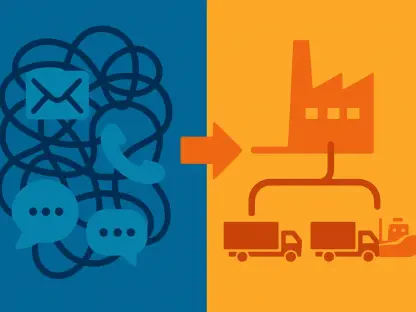As the insurance industry navigates a transformative era, the convergence of cutting-edge technologies is reshaping how policies are crafted, claims are processed, and customers are engaged. Imagine a world where a health insurance policy is tailored in real time based on data streaming from a wearable device, or where a claim is settled automatically within minutes through a transparent digital contract. This is no longer a distant vision but a reality unfolding across the sector. Artificial intelligence (AI), blockchain, and insurtech innovations are driving unprecedented efficiency and personalization, while also presenting complex challenges in privacy, regulation, and integration. These advancements signal a pivotal shift, compelling insurers to adapt swiftly or risk obsolescence in a rapidly evolving market. The stakes are high, and the race to harness these tools is defining the competitive landscape for insurers, brokers, and startups alike, setting the stage for a deeper exploration of their impact.
Emerging Technologies Reshaping Insurance
AI’s Transformative Role in Underwriting and Personalization
The integration of AI into insurance operations has moved beyond experimentation to become a cornerstone of efficiency and customization. Predictive analytics powered by AI are revolutionizing underwriting by enabling insurers to assess risks with remarkable precision. By analyzing vast datasets in real time, machine learning algorithms streamline approvals, cutting costs significantly—some estimates suggest reductions of up to 30% in commercial lines. This capability allows for faster policy issuance and more competitive pricing, benefiting both insurers and clients. Furthermore, AI’s ability to process data from wearables and Internet of Things (IoT) devices is paving the way for highly personalized policies. In health insurance, for instance, real-time data helps craft preventive strategies by identifying patterns in patient histories, marking a shift toward proactive care models that could redefine customer expectations in the industry.
Beyond operational efficiency, AI is fostering deeper customer engagement through tailored experiences. Insurers are leveraging big data to offer policies that adapt dynamically to individual behaviors and needs, a trend particularly evident in auto and health sectors. For example, telematics data can adjust premiums based on driving habits, rewarding safe practices with lower rates. However, this personalization comes with hurdles, including concerns over data privacy and the need for robust cybersecurity measures. Stricter regulations are emerging to address these issues, requiring insurers to balance innovation with trust. Additionally, integrating AI with legacy systems poses a significant challenge, often demanding substantial investments. Despite these obstacles, the potential for AI to transform risk forecasting and policy design remains a driving force behind its widespread adoption across the insurance landscape.
Blockchain’s Impact on Transparency and Efficiency
Blockchain technology is emerging as a powerful complement to AI, particularly in enhancing transparency and streamlining processes. Smart contracts, a hallmark of blockchain, automate claims verification and payouts, drastically reducing processing times and minimizing human error. This innovation tackles long-standing criticisms of opacity in insurance by providing an immutable record of transactions, fostering trust among policyholders. The technology’s potential to curb fraud is also gaining attention, with applications extending to securing complex products like retirement fund insurance. As discussions on social platforms highlight, blockchain’s decentralized nature offers a safeguard against manipulation, positioning it as a critical tool for modernizing claims management in an industry often scrutinized for inefficiencies.
The broader implications of blockchain extend to operational cost savings and improved customer satisfaction. By eliminating intermediaries in certain processes, insurers can reduce overhead while accelerating service delivery, a win-win for both parties. Applications in property and casualty insurance are particularly promising, where blockchain can ensure accurate data sharing among stakeholders during multi-party claims. Yet, challenges remain, including the scalability of blockchain networks and the need for industry-wide standards to ensure interoperability. Regulatory frameworks are also evolving to address the legal implications of automated contracts. Despite these complexities, the technology’s ability to enhance trust and efficiency underscores its growing relevance, as insurers seek innovative ways to differentiate themselves in a crowded market.
Market Dynamics and Future Horizons
Insurtech Startups Driving Competitive Disruption
Insurtech startups are redefining the competitive landscape by leveraging AI and telematics to deliver instant, app-based services that prioritize customer convenience. Companies in property, casualty, health, and auto insurance are capturing significant market share with user-centric models that traditional insurers struggle to match. These disruptors utilize real-time data to offer on-demand coverage and transparent pricing, appealing to tech-savvy consumers who value speed and simplicity. The rise of digital-first platforms has not only intensified competition but also pushed established players to rethink their strategies, accelerating the adoption of technology across the board. This shift is reshaping how insurance products are marketed and consumed, with a clear emphasis on accessibility and personalization.
The momentum of insurtech is further evidenced by the rapid growth of digital brokerages and insurance aggregators, which are projected to surpass a market value of $106 billion by 2029. These platforms streamline client interactions by offering comparison tools and AI-driven recommendations, making it easier for consumers to navigate complex insurance options. However, this disruption comes with risks, including potential over-reliance on technology that could alienate less tech-savvy demographics. Regulatory scrutiny is also intensifying as these startups handle sensitive data, necessitating strict compliance with evolving standards. Despite these challenges, the agility of insurtech firms continues to set a new benchmark, compelling the industry to prioritize innovation while maintaining a focus on trust and reliability in customer relationships.
Long-Term Projections and Ethical Considerations
Looking ahead, AI’s role in real-time risk management is poised to become even more critical, with intelligent systems expected to handle complex scenarios by 2035. In property and casualty insurance, AI-driven catastrophe modeling integrates satellite data to predict losses with unprecedented accuracy, a vital tool amid escalating climate risks. This capability enables insurers to prepare for and mitigate the financial impact of natural disasters, enhancing resilience in an unpredictable environment. The technology’s predictive power also extends to other domains, offering insights that could transform how risks are priced and managed over the coming decade. As these systems evolve, their integration into core operations will likely become a defining factor in determining market leaders.
Equally important are the ethical and regulatory dimensions of this technological shift. Mandates for digitization aim to ensure transparency and protect policyholders, while a global push for ethical AI seeks to prevent biases in risk profiling that could unfairly impact certain groups. Industry insights emphasize the value of hybrid models that combine human expertise with automation, striking a balance between efficiency and empathy. Navigating these considerations requires a cautious approach to implementation, as poor execution risks eroding customer trust. The consensus is clear: while technology offers immense potential, its adoption must be guided by principles of fairness and accountability to sustain long-term confidence in the insurance sector.
Reflecting on a Tech-Driven Legacy
As the insurance industry reflects on its journey through a transformative period, the profound influence of AI, blockchain, and insurtech stands out as a defining chapter. These technologies have reshaped underwriting with precision, brought transparency to claims through smart contracts, and spurred competition via innovative startups. The path hasn’t been without obstacles—privacy concerns, regulatory hurdles, and integration challenges have tested the sector’s resolve. Yet, looking back, the strides made in personalization and efficiency mark a turning point. Moving forward, the focus should shift to refining these tools, ensuring ethical standards keep pace with innovation, and fostering hybrid models that blend technology with human insight. Insurers must also invest in educating customers about digital solutions to bridge adoption gaps. By prioritizing trust and adaptability, the industry can build on this legacy, turning today’s advancements into tomorrow’s foundation for a more resilient and inclusive insurance ecosystem.









